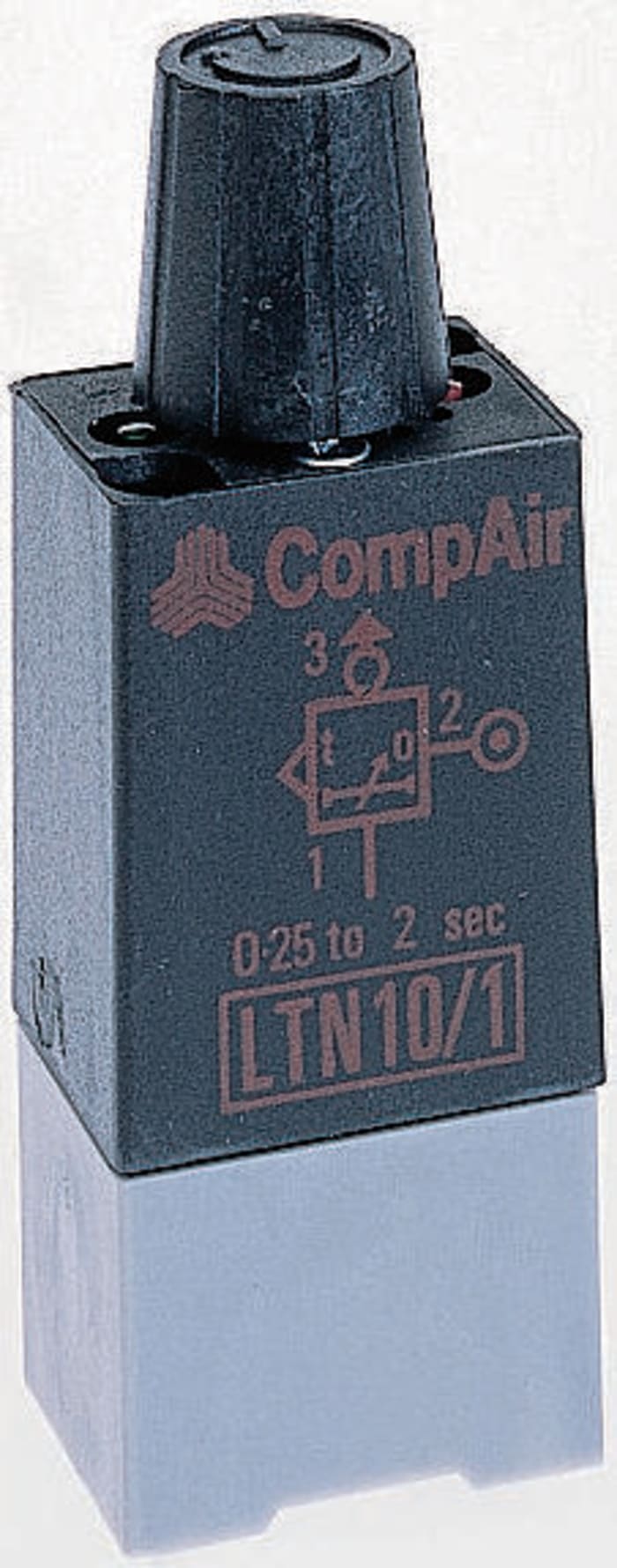Technical Document
Specifications
Brand
ParkerMaximum Time
3s
Minimum Time
0.1s
Maximum Operating Temperature
+60°C
Manufacturer Series
PRT
Minimum Operating Pressure
3bar
Maximum Operating Pressure
8 bar
Minimum Operating Temperature
-15°C
Product details
Timer Module
A pneumatic timer consists of a solenoid coil/core, operating spring, timing disk, filter and diaphragm. The core moves up into the coil when it has been energized and this leads to pressure on the diaphragm. The diaphragm moves into the top chamber which un-traps the air through the timing disk. By altering the needle valve you can adjust the amount of delay.
Very Reliable
Long Life Expectancy
Logic Systems
Logic units are best thought of as miniature valves, whose purpose is to influence the behaviour of larger power valves. They achieve this by producing and receiving output and input signals, using the common air supply. In this way, they are able to monitor and control a whole sequence of operations with great accuracy and repeatability.
BD 127.446
BD 127.446 Each (Exc. Vat)
BD 140.191
BD 140.191 Each (inc. VAT)
1
BD 127.446
BD 127.446 Each (Exc. Vat)
BD 140.191
BD 140.191 Each (inc. VAT)
Stock information temporarily unavailable.
1
Stock information temporarily unavailable.
| Quantity | Unit price |
|---|---|
| 1 - 4 | BD 127.446 |
| 5+ | BD 122.348 |
Technical Document
Specifications
Brand
ParkerMaximum Time
3s
Minimum Time
0.1s
Maximum Operating Temperature
+60°C
Manufacturer Series
PRT
Minimum Operating Pressure
3bar
Maximum Operating Pressure
8 bar
Minimum Operating Temperature
-15°C
Product details
Timer Module
A pneumatic timer consists of a solenoid coil/core, operating spring, timing disk, filter and diaphragm. The core moves up into the coil when it has been energized and this leads to pressure on the diaphragm. The diaphragm moves into the top chamber which un-traps the air through the timing disk. By altering the needle valve you can adjust the amount of delay.
Very Reliable
Long Life Expectancy
Logic Systems
Logic units are best thought of as miniature valves, whose purpose is to influence the behaviour of larger power valves. They achieve this by producing and receiving output and input signals, using the common air supply. In this way, they are able to monitor and control a whole sequence of operations with great accuracy and repeatability.

